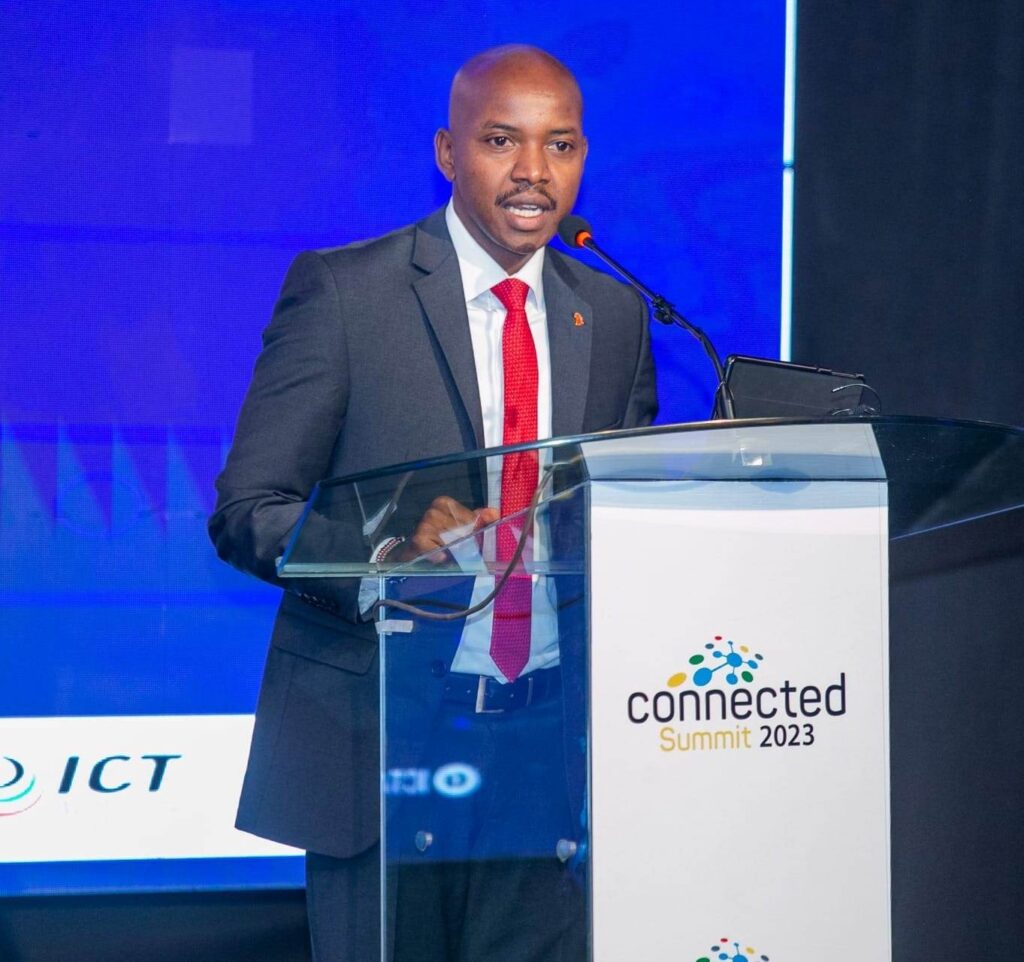
Stanley Kamanguya, OGW, Chief Executive Officer, ICT. PHOTO: File
By Benard Mulwa.
The government through the ministry of Information Communication and technology, ICT is seeking to formulate policies and guidelines that will help in the disposal and management of e-waste in the country, setting in motion a dialogue between the Ministry of ICT, Public Procurement Regulatory Authority, PPRA and the private sector.
According to the Chief Executive Officer, ministry of Information Communication and Technology, while addressing a high profile symposium in Nairobi today, Stanley Kamanguya, said last year alone the ministry of ICT have collected 63 million of mobile devices, “we have more electronic devices which ranges from mobile smartphones, tablets, and desktop computers than the people population”, he said, adding that there is also economic opportunities by having a lot of e-waste which are lying idle in the households and government offices.
The government has taken a number of steps including engaging manufactures to look at ways to manufacture devices which can be easily repaired and recycled, he said in the last nine months, the ministry have received 11 thousand devices.
The Chief Executive Officer also added that space on where to keep the e-waste devices was another challenge and that the government has developed a center with ICT experts to look at how to repair some of these devices adding that this move will support schools by providing computers to the learners.
Also in his speech to heads of Directors at the symposium today, the CEO said the ministry is looking on how to manufacture devices with negative effects and the life cycle of the devices, “we want to light fire for companies who provide us with eye spectacle, they should be recycled to reduce to reduce individual foot print and create economy both directly and indirectly” he said.
At the same time, the head of Public Procurement Regulation Authority, PPRA, Dr. Maximus Siwa, also voiced is concerns, saying that the government is seeking alternative solutions at the time of purchasing these devices, “ all this starts at the procurement level, so there is need to factor in sustainable Public Procurement and to ensure procurement and sustainable partners” he said, Kenya does not have a comprehensive e-waste management policy that outlines the principles, objectives and strategies.
The potential catastrophic these e-waste devices produce is very huge, the Deputy Director at the National Environmental Management Authority, NEMA, Dr. Charles Lange, also said at the symposium, “there is a lot of toxic materials in these e-waste devices and the population is exposed to cancer risk” he said.
The Ministry of Information Communication and Technology is currently conducting training to 500,000 youths on e-waste management, repair and maintenance of ICT devices at Konza city where skills like the old recycled batteries are being used in the boda boda sector and to produce solar panels are applied.
The National Environmental Management Authority, NEMA will be converging in Mombasa next week to discuss in details on e-waste one of the best minds in the world.
-End.

More Stories
Enterprises from 123 Belt and Road partner countries participate in 8th CIIE
170 enterprises, 27 institutions maintain full attendance at CIIE for 8 consecutive years
Interview: China remains our “most irreplaceable customer,” says CEO of U.S. Soybean Export Council